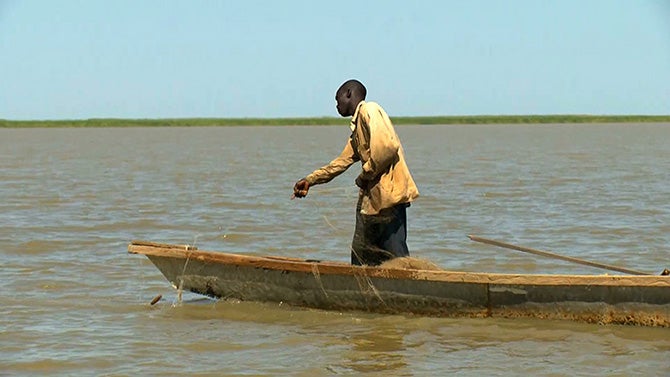
Climate change imposes stark challenges in West and Central Africa, where droughts and floods are already frequent. Vast portions of the region’s populations are poor, dependent on natural resources for their livelihoods, and unable to prepare and respond adequately to extreme weather events. Weak monitoring and information systems, absence of proper infrastructure, and limited governance capacity render countries in the region unable to manage their climate risks, threatening food and energy security, economic development, ecosystem health, and overall regional stability.
A recent Intergovernmental Panel on Climate Change report states that “given multiple uncertainties in the African context, successful adaptation will depend on building resilience.” In the absence of proactive resilience-building actions, environmental, social, and political changes could compound climate challenges and overwhelm Africa’s ability to cope. Furthermore, if unabated, the impacts of climate change could reverse many of the development achievements of the recent past.
In fact, water is one of the most important pathways through which climate change impacts people and the environment in this region. Opportunities to build resilience via water resources management are therefore a high priority. Because countries in the region share their rivers and groundwater, coordinating across boundaries on adaptation considerations can present significant opportunities for better resilience and shared benefits.
Capitalizing on this opportunity provided by their shared waters, countries of the Niger and Lake Chad Basins took a historic step by coming together to develop basin-scale climate resilient development plans in the run-up to the 2015 Paris Climate Conference, COP21. Taking a basin-wide approach to climate resilience planning is considered a best practice in the field – but it is not a technique that is easily or widely implemented. However, with the alignment of strong political leadership and climate change-imposed urgency, the Niger and Lake Chad basins have shown that it is possible for countries to embark on this ambitious path. Our Cooperation in International Waters in Africa (CIWA) program, a multi-donor partnership administered by the World Bank, has been supporting the technical and political process leading to the development of the two plans. Following endorsement of the plans by their Heads of State and Ministers of Water and Finance, the countries showcased the plans to the international community at COP21 with the goal of mobilizing resources to launch the implementation-ready investments.
At the Africa Pavilion, the Niger Basin Authority (NBA) and its nine Member States presented the Niger Basin Climate Resilience Investment Plan, a ten-year initiative that prioritizes resilience-building investments, worth a cumulative US$3.1 billion which can potentially benefit 112 million people across the basin. The Plan, based on existing national and regional planning documents and adaptation programs, reflects riparian priorities. Investments included in the Plan – which address a wide variety of needs ranging from institutional strengthening, to improving ecosystem conservation, to advancing major infrastructure – emerged from a rigorous, consultative screening of actions in these planning documents for their contribution to resilience and an evaluation of their readiness for investment.
In parallel, the Lake Chad Basin Commission (LCBC) and its six Member States highlighted the 10 year, multi-sectoral Lake Chad Development and Climate Resilience Action Plan. The Action Plan presents a range of actions that need to be implemented concurrently with peace and security restoration efforts to improve the resilience of the 15 million people depending on the lake for their food and livelihood security. The Action Plan highlights investment needs totaling US$1 billion (€916 million) to support sustainable livelihoods, improve infrastructure, strengthen institutional capacity, and expand knowledge and management of natural resources.
As a global commitment to exponentially expand adaptation actions emerges out of COP21, it is commendable that countries of the Niger and Lake Chad basin stand ready with a prioritized set of implementation-ready resilience-building investments. We and our partners stand ready to support them.
Video: The Promise for a Better Future – Niger Climate Resilience Investment Plan
Video: Lake Chad – A Precious Resource in the Sahel


Join the Conversation